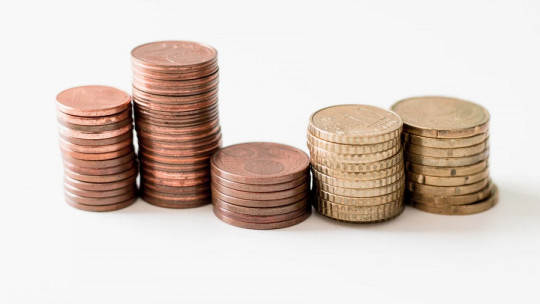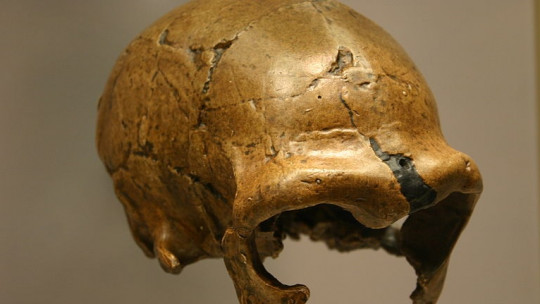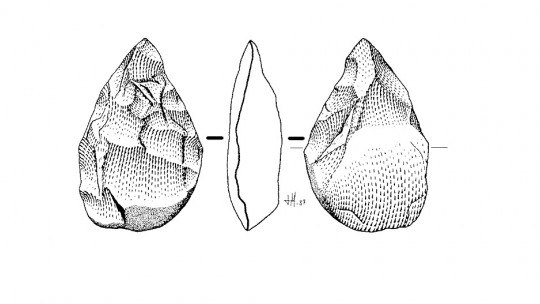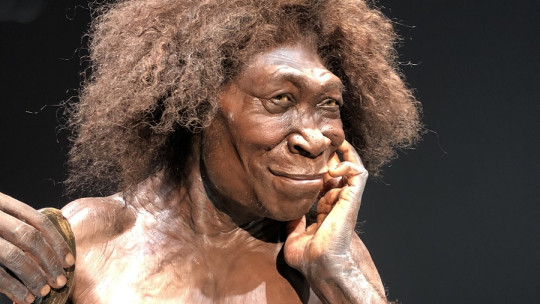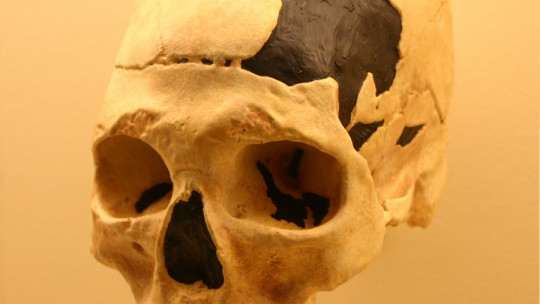Although our species is Homo Sapiensin certain contexts a different expression has begun to be used.
Let’s learn what the term homo economicus implies , in what field this concept was developed and what is the meaning of using it to refer to our species and the evolutionary moment in which we find ourselves. To do this we will review everything related to this name.
What does homo economicus mean? History of the concept
The concept of homo economicus, originally written as homo œconomicus, means, in Latin, economic man. Obviously, this is an expression that unifies the gender of our own species, homo, of Homo sapiensalso including the term referring to the economy, since It arises from contexts such as game theory, where this homo economicus would be a totally rational being who with his actions always seeks maximum benefit through minimum effort.
It is a term coined in the 19th century by John Stuart Mill, one of the leaders of the classical economic school. Mill speaks of homo economicus within the context of political economy and how man makes decisions in such a way that he evaluates their costs and benefits so that the latter are always as great as possible. However, although he gave it a name, in reality this concept already existed before.
The first economist to speak on this question was none other than Adam Smith , who in his masterpiece, The Wealth of Nations, already mentions the rationality of human beings in matters that concern our behavior in an economic manner and how we try to achieve the most satisfactory result in exchange for the least loss of resources. . With which we could affirm that the concept of homo economicus was actually born in the year 1776.
Delving into this question and returning to JS Mill, this author suggests that we should not confuse the actions of people who, in the exercise of their profession, give other people the possibility of obtaining products or services, with a mere act of kindness. In that sense, the fact that an artisan provides us with clothing or that a doctor treats us and cures us does not mean that they are good by nature, but rather that they are looking for a benefit.
In fact, this statement connects with the writings of a much older author, one of the most important philosophers in history: Aristotle Almost 4 centuries before Christ, this Greek philosopher had already realized that it was natural for men to have an interest in getting money, among other things, because thanks to it and the individual property derived from it, they had the ability to help others. your loved ones, such as your own family or friends.
As we see, the idea of the concept of homo economicus had already existed for a long time, but it was with the arrival of the 19th century when neoclassical economists expressed it scientifically, that is, through mathematical models that allowed explaining and predicting this very human form of behavior. Authors such as William Stanley Jevons, Marie-Esprit-Léon Walras, Francis Ysidro Edgeworth and Vilfredo Federico Damaso Pareto stand out.
Already in the 20th century, Economist Lionel Charles Robbins created the theory of rational choice an approach that crystallized the essence of homo economicus and provided him with the final definition: the man whose behavior is motivated by reasoning taking into account his own interests, among which are the desire to obtain benefits (money or profit from Some kind).
The homo economicus model
After the historical journey carried out, we now know in depth the meaning of homo economicus We have seen that the essence underlying this term had already been an object of thought since ancient times. However, it has been in recent history (19th and 20th centuries) when it has finally been reflected in mathematical and more specifically economic models.
According to the approaches of the authors who work with the term, they always establish the premise that homo economicus will try to achieve the highest possible well-being, always calibrating both the opportunities available to them and those difficulties that are given by the environment in which they live. the one that exists, including the administrations that economically govern the system.
As we anticipated in the previous point, this behavior must be rational, since this is how the individual manages to optimize this achievement of well-being (he will achieve the maximum and at the same time try to spend the least part of the resources available to him). Rationality, therefore, will be limited to the function of achieving the best result but it does not mean that the end sought is rational in itself.
It is important to make this distinction, since otherwise we would be stating that homo economicus will always know in some way what objectives he should pursue based on how beneficial they will be for him in the long term, when it is evident that In many cases there is no rational way to reach that conclusion because we do not have enough information.
Limitations of this concept
Although the concept of homo economicus has had a long history and we have even seen that at a historical level this idea was talked about many centuries ago, it is a model that has certain limitations and that has earned it the target of different criticisms for part of authors who reject the foundations of this model, either totally or partially. Let’s look at some of them.
1. Criticism from anthropology
One of the most important comes from the field of anthropology. Authors who study both that discipline and economics are in a position to make an important criticism of the concept of homo economicus. For them, a fundamental issue that has not been taken into account is that The decisions of the individual vary significantly depending on the society in which they live and therefore according to the values (also economic and social) in which he has grown up and that he considers as his own.
It is the position of authors such as Karl Polanyi, Maurice Godelier, Marshall Sahlins or Marcel Mauss, all of them anthropologists and economists who give the example of more traditional cultures in which all economic decisions are made, not according to the benefit that the individual obtains, but under the principle of reciprocity between both parties. That is, it is intended that both achieve an equivalent benefit.
2. Criticism from the Austrian school
Another of the main criticisms of the homo economicus model comes in this case from another economic school, the Austrian one. They put on the table the question of the supposed omniscience of the individual, who according to the approach we saw previously, would always know which option was going to provide the greatest benefit.
It is evident that this is not always the case and that Rarely do we have complete knowledge about all the repercussions of an action Therefore, stating that the subject will always make the decision that provides the greatest profits would be too naive and would also have a significant bias.
Therefore, it is essential to assess at all times the information available to the individual to know what they have based their behavior on.
3. Criticisms from psychology
Likewise, thoughts have emerged from the field of psychology that question the validity of the homo economicus model. For example, Israeli authors Daniel Kahneman and Amos Tversky, experts in behavioral economics, state that This model leaves out a key issue for all decision making: the way in which it is presented to the individual
For Tversky and Kahneman, almost as important as the profit to be obtained is the perception that the subject has about the possible losses and gains that will be had in the operation. They assume that people, as a general rule, prefer not to lose than to win. Therefore, simply the statement that we ask a person to choose between two options can make them lean toward one or the other, in our words.
Therefore, if we present a person with the choice between option A or option B, but in one case we do so by emphasizing the possibility of losing if he chooses A and in another case on the option of not winning if he chooses B, we can make him radically change his choice, the options being identical in both cases
This would be, therefore, the third major criticism that the homo economicus model has received and for which another series of models have been proposed to try to make up for these deficiencies and thus contemplate more variables.

